|
Word Gems
exploring self-realization, sacred personhood, and full humanity
History & Civilization
"The essential characteristic of Western civilization that distinguishes it from the arrested and petrified civilizations of the East was and is its concern for freedom from the state. The history of the West, from the age of the Greek polis down to the present-day resistance to socialism, is essentially the history of the fight for liberty against the encroachments of the officeholders." Dr. Ludwig von Mises

Editor's Essay: An ‘Earthrise’ View of Civilization: an unauthorized biography
Editor's 1-Minute Essay: History
Professor Carl Gustavson's A Preface to History
Kenneth Clark's Civilisation
Will & Ariel Durant's Story Of Civilization
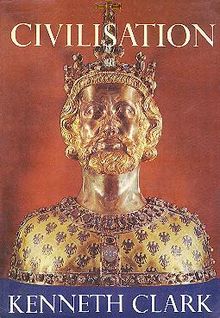
Paul Johnson, Forbes, 5-7-07: “When I was at Oxford studying history 60 years ago the fashionable approach was to discount individuals and stress the importance of forces and classes. Everything I've learned since, reporting in the real world ... has proved how important outstanding individuals are, for good and evil. This first became clear as I watched U.S. President Harry Truman and Secretary of State General George Marshall implement the Marshall Plan, which saved battered postwar Europe from destitution and the Soviets. I saw it again when two great men, Chancellor Konrad Adenauer and General Charles de Gaulle, rebuilt Germany and France into powerful and influential nations after the shame and humiliations of World War II. Again and again, an enlightened and strong-willed individual has pushed against the prevailing trends and the prevailing wisdom to perform an act of courage that has changed history. Marshal Tito, leader of Yugoslavia, broke the monolithic mold of the Soviet empire. Lee Kuan Yew of Singapore proved that a small nation can make itself rich and significant--without great stores of natural resources--simply by using its brains. Richard Nixon ended years of bitter hostility between the U.S. and China, forging relationships with China's leaders and inaugurating a process that has led this giant nation into the world of enterprise, capitalism and prosperity. And perhaps most impressive of all, Pope John Paul II, Prime Minister Margaret Thatcher and President Ronald Reagan joined to bring down the crumbling walls of the Soviet empire, giving hundreds of millions of people the chance to enjoy freedom. In all these cases individuals were of supreme importance. Without them the world today would be a very different place.”
|
more than drinking the koolaid
The long reach of cultism encompasses much more than crackpot churches. The root idea of cult offers the sense of "cut." This core concept of "cut" leads us to images of refinement and refashioning and, by extension, development, control, pattern, order, and system.
Cultism as systemization finds a ready home in religion and philosophy which seek to regulate and redistill the patterning and ordering of ideas. However, in a larger sense, the spirit of cultism extends to every facet of society. We find it scheming and sedulously at work in politics, academia, family, corporations, entertainment, science, artistry – anywhere power might be gained by capturing credulous and fear-based minds.
See the “cultism” page for a full discussion.

|
|
a special note to college students: how to respond when your history professor pontificates that 'man has no free will,' that 'the so-called great men and women of history were merely pawns of social forces sweeping them along'
Materialism has invaded and corrupted virtually all academic disciplines. What is materialism? It is the unfounded, unsubstantiated belief – a “religious” belief – that all elements of reality are a product of “upward causation”; that is, at the lowest level of essence, we find nothing but sub-atomic particles, gathering to form atoms, which coalesce to create molecules, upward and upward, constructing cells, then tissue, whole organisms, and finally, consciousness itself. Materialists, without evidence, and in the face of the amply contradictory sort, posit that consciousness is just an epiphenomenon – an emergent, secondary quality -- of the brain.
Those of you attending history classes and meeting this “man is a pawn of social forces” propaganda need to ask yourself the question: With the endless topics for discussion which history offers, why this need to attack man’s free will? – especially, in this class? Wouldn’t it be more appropriate for a psychology class?
Materialistic history professors are profoundly threatened by the subject of free will. If free will is allowed to stand, if man is not dehumanized, stripped of the dignity of choice, then sacred humanism and consciousness itself will gain the hegemony. And if that happens, then the materialistic world-paradigm will be shattered. It needs to be shattered.
Further, if each of us is just a wayward piece of directed flotsam drifting on the tides of history, if we're all programmed by neuronal misfirings of the brain, then why should we take seriously anything the materialistic professors say? - as their own propaganda will also be programmed.
The notion that "man has no free will" is built upon the outdated Newtonian concept of "we can predict, in theory, if we had enough information, all future movement of a particle." But this is not true.
Materialistic professors blather on about "man has no free will" because they think their teaching is based on an underlying physics - an obsolete physics. Someone needs to break the news to them that their view is outdated now along with the buggy whip.
Newtonianism has been superseded by Quantum Mechanics. Read the article here.
|
Editor's note: On several pages of WG, I've posted the following item on the work of Tom Campbell.
'the truth is not a fragile thing and will eventually rise to the top of a heap of competing ideas'
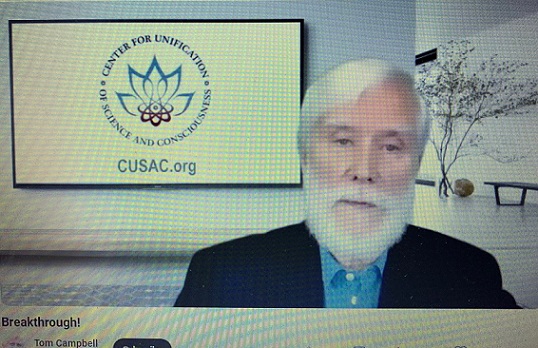
Physicist Tom Campbell, in clear language, explains the history and significance of the quantum mechanics revolution of 100 years ago, how its implications were denied by materialists, and why, as Tom sees it, its proper explication might lead to a better world, free from the power-control-force paradigm afflicting all of us today.
READ MORE
I think very highly of Tom’s work, but there’s an aspect that prompts a note of difference. He suggests that, just as humankind has progressed from hunter-gatherer age, to the various metal ages, to the industrial, space, and information ages, so too, if a better view of quantum mechanics is adopted, the world will enter a new level of maturity. I don’t think so; not really. It is true that man has journeyed upward from caves to skyscrapers to space stations, but, in that trek, while externals have altered, the basic underlying dark and violent nature has remained the same. The new quantum-based thinking will likely eventually be accepted, because the facts overwhelmingly support, but, when this occurs, there will be new tricks, new schemes, by the ego to hijack apparent progress. This is the history of civilization’s bloodied ascent. In the “500 tape-recorded messages from the other side” we discussed the errant view of “more knowledge will soon usher in a golden age.” It’s a nice idea, but we're still waiting, as the dysfunctional ego, in its power-control-force ways, will never allow this.
William Dean Howells: "It’s a curious thing, this thing we call civilization... It’s really an affair of individuals. One brother will be civilized and the other a barbarian."
William Ralph Inge, (1860-1954), Dean of St. Paul's Cathedral, London: “Ancient civilizations were destroyed by imported barbarians; we breed our own.”
|
one of the great oddities of history
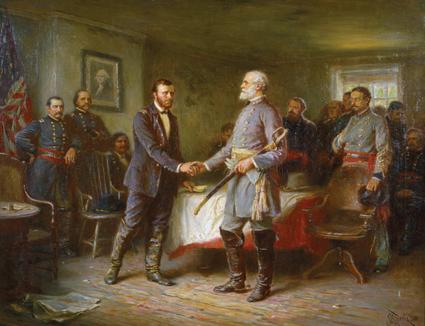
Let Us Have Peace, 1865, Jean Leon Gerome Ferris
Ken Burns, The Civil War: "By the summer of 1861 Wilbur McClean had had enough. Two great armies were converging on his farm in what would be the first major battle of the Civil War, Bull Run - or Manasses, as the Confederates called it - would soon rage across the aging Virginian's farm, a Union shell going so far as to explode in the summer kitchen. Now, McClean moved his family away from Manasses, far south and west of Richmond, out of harm's way, he prayed, to a dusty little crossroads called Appomattox Courthouse. And it was there in his living room, 3 1/2 years later, that Lee surrendered to Grant - and Wilbur McClean could rightfully say, The War began in my front yard and ended in my front parlor."
|
Lucian (A.D. 120-200): "The historian should be fearless and incorruptible; a man of independence, loving frankness and truth; one who, as the poets says, calls a fig a fig and a spade a spade. He should yield to neither hatred nor affection, not should be unsparing and unpitying. He should be neither shy nor deprecating, but an impartial judge, giving each side all it deserves but no more. He should know in his writing no country and no city; he should bow to no authority and acknowledge no king. He should never consider what this or that man will think, but should state the facts as they really occurred."
Will Durant: "Civilization is a stream with banks. The stream is sometimes filled with blood from people killing, stealing, shouting and doing the things historians usually record, while on the banks, unnoticed, people build homes, make love, raise children, sing songs, write poetry and even whittle statues. The story of civilization is the story of what happened on the banks. Historians are pessimists because they ignore the banks for the river."
F. A. Hayek, The Road to Serfdom: "As is so often true, the nature of our civilization has been seen more clearly by its enemies than by most of its friends: 'the perennial Western malady, the revolt of the individual against the species,' as that nineteenth-century totalitarian, Auguste Comte, has described it, was indeed the force which built our civilization. What the nineteenth century added to the individualism of the preceding period was merely to make all classes conscious of freedom, to develop systematically and continuously what had grown in a haphazard and patchy manner, and to spread it from England and Holland over most of the European continent… The result of this growth surpassed all expectations. Wherever the barriers to the free exercise of human ingenuity were removed, man became rapidly able to satisfy ever widening ranges of desire. And while the rising standard soon led to the discovery of very dark spots in society, spots which men were no longer willing to tolerate, there was probably no class that did not substantially benefit from the general advance."
Disraeli: “The European talks of progress because by the aid of a few scientific discoveries he has established a society which has mistaken comfort for civilization.”
Sir Edward Gibbon, The History of the Decline and Fall of the Roman Empire: "The theologian may indulge the pleasing task of describing Religion as she descended from Heaven, arrayed in her native purity. A more melancholy duty is imposed on the historian. He must discover the inevitable mixture of error and corruption which she contracted in a long residence upon Earth, among a weak and degenerate race of beings... After a diligent inquiry, I can discern four principal causes for the ruin of Rome, which continued to operate in a period of more than a thousand years. I. The injuries of time and nature. II. The hostile attacks of the barbarians and Christians. III. The use and abuse of materials. And IV. The domestic quarrels of the Romans... It is scarcely possible that the eyes of contemporaries should discover in the public felicity the latent causes of decay and corruption. This long peace, and the uniform government of the Romans, introduced a slow and secret poison into the vitals of the empire. The minds of men were gradually reduced to the same level, the fire of genius was extinguished, and even the military spirit evaporated."
Voltaire: "History is but the register of human crimes and misfortunes."
it's not the color of skin, but the heart of darkness
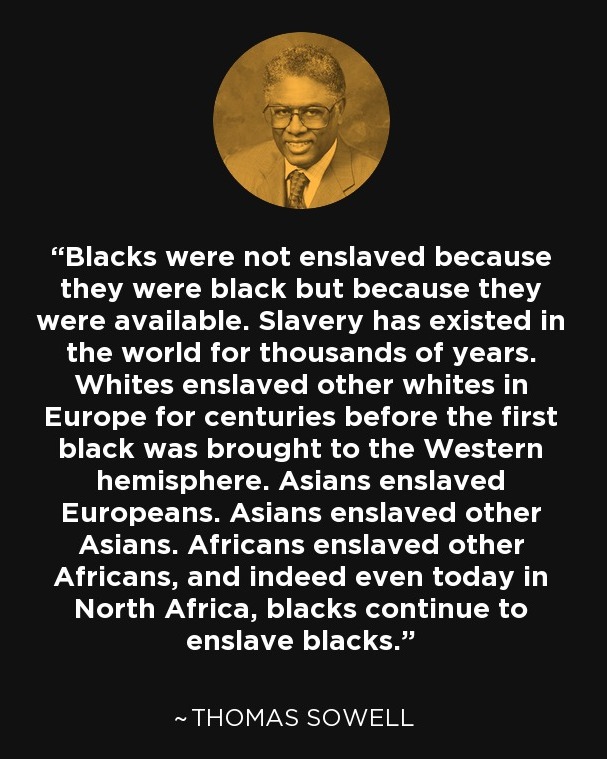
|
slavery in every country of the globe, in all ages
Spirit Guide instructing Franchezzo in the Dark Realms:
“If you will but recall the history of your Earth and think how men in all ages have enslaved, oppressed, and tortured their fellow men in every country of that globe…”
READ MORE of Franchezzo's channeled testimony concerning the Dark Realms.
|
|
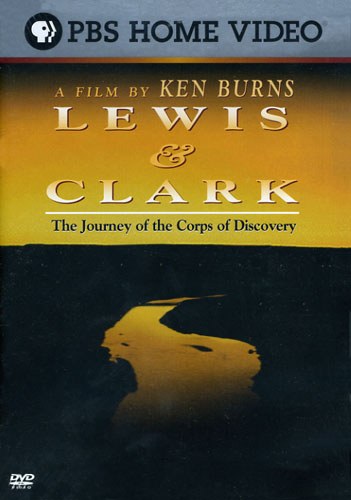
Ken Burns’ Lewis & Clark: The Journey of the Corps of Discovery, the search for the fabled Northwest Passage, is one of my very favorite documentaries. It’s really thrilling, with the four dozen adventurers, to trudge up the Missouri, against the current, sometimes literally getting out and pulling the boats, all the way to Helena, Montana, where the great watery path finally divides itself into competing rivulets, revealing its origins in hidden mountain springs.
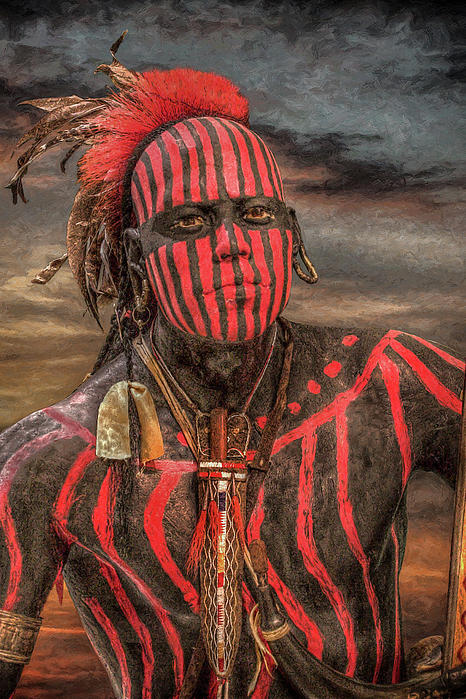
Along the way, the two famous captains encountered many Native American tribes. Some of these were the “bullies in the neighborhood,” brutalizing, grossly violating, and lording it over other tribes: not only were other men killed, with their scalps paraded as trophies, but women were stolen as prized plunder, now to live out their lives as non-entity sex-slaves and beasts of burden.
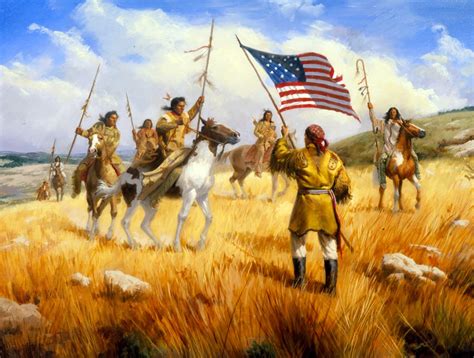
This all changed in a moment in 1804. Lewis and Clark, as part of their mission, announced to all they met that there was “a new kid in town” who would overturn old power structures and bring a new pecking order to the warring tribal factions.
Fast-forward 200 years. There are unscrupulous politicians today, in a page written by Marx, ever setting one societal group against another, attempting to buy votes by currying favor with that one at the expense of that other. And they want to apologize for what the Evil White Males have done in history. And it’s true, there’s a lot of apology to go around, that any now-enlightened person might tender.
However, to suggest that white males somehow are more evil than other two-legged creatures is just vote-buying propaganda. The issue of brutality, pillaging, and atrocity, is not a “white” problem, as such, but a “human” problem. Every person, led by the “false self,” if unimpeded, if not constrained by a sturdy rule of law, will sink as low as necessary, do whatever it takes, to appease the inner chantings of “I don’t have enough” because “I am not enough.”
What the Whites did to the Reds, or the Blacks, or any other color that got in their way, is unforgivable; but, within the abused groups, and every group of every nation in history, we will find reports aplenty of intra-group barbarity -- just ask Will Durant in his "Story Of Civilization."
The Whites weren’t more evil – they just had better technology, so it was hard to stop them. And to frame the issue in terms of one group being more evil than another is not only a new form of racism but an utter sophistic misconstruing of the universal problem of “the heart of darkness” among all peoples.
Editor’s note: As I recount on the “Reading” page, I lived on “the reservation” as a teacher for a time. And I will tell you for a fact, from first-hand experience, that, within that little insulated microcosm, the Native “elites” took advantage of, made merchandize of, their less-educated brethren, just the way, in principle, their bellicose forebears had done it prior to 1804. They intentionally and purposefully kept their fellows dependent and ginned-up against the Whites, to control them via a spirit of envy and victimhood -- as much as they could get away with, as far as the law allowed, and then some.
European slave-traders were aided and abetted by warlike African tribes, which possessed large numbers of Black African slaves, their own countrymen and women.
We don’t hear much about this from the vote-buying demagogues who want to portray slavery as an inherently White infraction. Do some research, for example, on the Imbangala or Nyamwezi African tribes who plundered their own racial brethren, enslaving them, and, at times, sold them for profit to the slave-trading Whites.
Editor’s note: Blacks enslaving Blacks, not only a matter of historical record but, according to current Black sources, continues to be practiced in Africa even today. Further, this intra-racial slavery is also referred to in popular-culture media such as the movie “Amistad.”
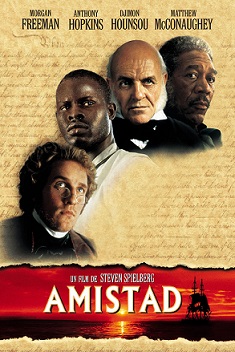
The issue of slavery, so common in history among virtually all peoples, is what the dysfunctional ego will allow itself if granted sufficient power and control over any who get in its way.
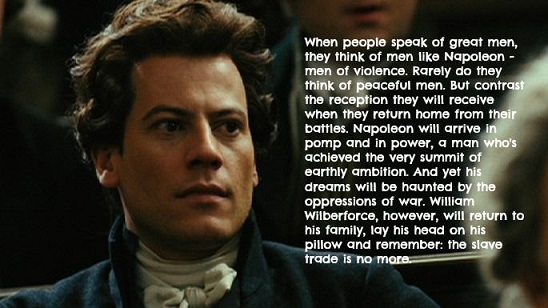
|
In 1787, a young Englishman, William Wilberforce, became aware of the atrocities of the African slave trade. So moved was he that, against all odds, against powerful political and economic interests, often working alone, he began to wage war on this barbarity. Very slowly, by inches, as prosecuting attorney for the truth, he would turn public opinion against the great inhumanism. Finally, after decades of crusade, during which he was constantly attacked, threatened, and vilified by the privileged, Parliament set as law The Slavery Abolition Act of 1833 throughout the entire British Empire. Wilberforce's struggle was not unique: every reformer, as guardian of sacred freedoms and human dignity, intent upon overturning the vested totalitarian interests, the "money-changers' tables," will face kangaroo-court treatment in this world. See William Wilberforce in the motion picture, Amazing Grace, and read more on the "Economics" page.
Editor’s note: A great-great grandson of the great, great man, Father Gerard Wilberforce, states, “I am often asked what would be the campaigns Wilberforce would be fighting if he were alive [today] … at the top of the list would be the issue of abortion.” The historical ironies and echoes of the slavery-abortion connection sickens us. Recently, a top US government official stated at a press conference that, if Roe vs. Wade were overturned, the national economy would be adversely affected. We not only gasp at the putridly mercenary reasoning but remind ourselves that this was the same venal argument made in pre-Civil War days concerning the freeing of Blacks.
|
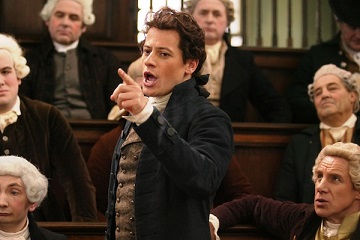 |
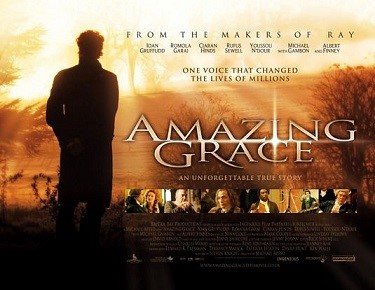 |
the problem of slavery is not centered in, not the product of, one specific "evil" race but is part of the unenlightened human condition at large
It’s become fashionable today, within certain circles, to excoriate the “evil white male” – but only among those seeking for totalitarian control. Promoting enmity and class warfare, setting group against group, is the ploy of those who would install themselves as savior of societal chaos.
These vote-buyers would have you believe that slavery was invented by the “evil while male,” conveniently forgetting that, throughout history, all racial groups have engaged in the practice of slavery – vis-à-vis other groups and also within their own group.
How terribly ironic that the person who virtually single-handedly achieved the outlawing of the African slave trade is revealed as one of those “evil white males.” It is an unconscionable travesty of justice to fail to honor William Wilberforce as the man who signaled the beginning of the end of the great barbarity.
Editor’s note: Recently, I watched a movie on the life of Malcolm X. He was an angry young man, but then, he had a lot to be angry about, and I was angry with him. None should blame him for not winning a Miss Congeniality Award. As the movie progressed, I grew to admire him more and more as he courageously stood up for the divine rights of his people. If director Spike Lee offered accurate portrayal, then it seems that, in latter years, just before he was killed, Malcolm began to soften his stance on the “evil white male” and took a more universalist approach toward the nature of evil in the world. Incredibly ironic, however, is how he died. It seems that Malcolm had grown too popular and was now a threat to the once-mentoring religious Dear Leader. They sought to kill Malcolm, and apparently it was they who brought him down. We have spoken of the universal problem of slavery, of violence and oppression, which respects no racial divide. How tragic that Malcolm himself would become an example, a victim, of blacks enslaving and brutalizing fellow blacks. It should also be pointed out that the religious Dear Leader, having used his influence to sexually exploit his young secretaries, justified his actions by comparing himself to Old Testament prophets who had many wives and concubines. This is an old and well-worn pretext. The Dear Leader of the old church, attended by Adrian Smith and myself in our younger years, was also involved in sexual misconduct, as were others in the hierarchy, and, from the pulpit, I still recall, the same Old Testament defenses being made. It's had a long run. Read about the spirit of fundamentalism/cultism extant in all true-believer societies. Malcolm learned of this too late.
|
in early America, there were both white and black slave owners
Wikipedia: “African American slave owners within the history of the United States existed in some cities and others as plantation owners in the country.”
Further, in Africa blacks enslaved blacks, and some blacks worked with white slave traders supplying black slaves for shipment.
For political reasons of totalitarian control, we have been offered a doctored narrative that slavery, and by extension racism, is a white problem and a white vice. But this wholly distorts the issue. Slavery and racism do not spring from one particular oppressor or group but these evils are part of a universal “heart of darkness” afflicting all human beings. This misrepresentation of history promotes division and strife among groups, allowing demagogues to buy votes, to position themselves as saviors, against the “evil white race.”
All unenlightened human beings will seek to dominate, oppress, and – if they can get away with it – enslave all others. This is business-as-usual on planet Earth for thousands of years. Today, while the traditional enslavement of peoples still exists in the world, there are other forms of slavery impinging upon human rights: child trafficking, drug dealing, pedophilia and sex slaves; and, for those who prefer the more subtle approach, there is the ever-popular mental enslavement via fake news, censorship, character assassination, and other distortions to serve political agendas.
|
the US Founding Fathers, with their emphasis on personal liberties, are attacked by totalitarians because they're a threat to power-and-control schemes
Thomas Sowell, an incredibly wise black man, is a voice of reason cutting through totalitarian propaganda: Slavery, for thousands of years, has been the norm, in every age, in every society, of this perverted world: whites have enslaved whites, reds have enslaved reds, yellows have enslaved yellows, blacks have enslaved blacks – and do so, even today, in Africa.
In the movie Spiderman: Homecoming we find a group of high school students touring the Washington Monument.

Someone says, “Oh, we can’t go in there, it was probably constructed with slave labor.” Well, that's quite an air-head comment - what a victim of Dear Leader propaganda. Because, as we peel back the layers of deception, bamboozling, fraud, hokum, and flimflam of sanitized views of how society works, we quickly discover that virtually everything we see around us, the entire world civilization, issues as a product of greed, vested interests, half-truths, injustice, brutality, despotism - every shade of diminution of human rights.
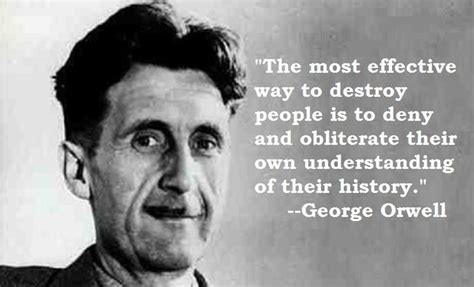
there are all kinds of slavery, all kinds of exploitation, doing very well in the world today
Think of Big Pharma, uninterested in any healthcare solution which cannot be sold in a bottle. They spend huge amounts in political lobbying efforts that natural remedies be made illegal. It's all about money and corporate profits, not saving lives.
Think of Big Energy, the polluting fossil fuels, not only poisoning the environment but buying up patents for alternative ways of delivering energy, only to shelve and bury the information.
Think of Big Religion, with its anti-humanistic, cultish and guilt-laced doctrines of you're no good, God could never love you, you were born in sin and cursed, your only job is to pay-pray-obey.
Think of Big Tech, and the trashing of privacy rights. See how they tag and flag, watch and surveil, collect data on you, merchandise the details of your life, invade your right to be anonymous.
Think of Big Science, its smug claim that you're nothing but a machine, just a collection of sub-atomic particles in deterministic dance, there's no free will, no virtues of love, joy, peace, no real consciousness and intelligence, the universe and your life have no meaning.
Think of Big Food, the polluting and genetic engineering, the coating with pesticides, of the food supply, leading to various health issues for the population.
Think of Big Media, the fake-news industry, bought and paid for by globalist totalitarians, deciding what you should know and what is “misinformation,” slanting or distorting or editing every story, subverting elections and the democratic process, engaging in character assassination toward any reformer who would disagree, dumbing-down and enslaving the people with incessant propaganda.
And, of course, Big Government, with its entrenched oligarchs, its backroom deals, hidden agenda, enriching themselves from public coffers, exempting themselves from laws enacted, wearing the mask of piety as the servant of the people, while diminishing human liberties and working against the common good.
But here is the most heinous of all slavery:

Sex Trafficking of Children and Women, involving millions of victims, a global network of sex slavery; the buying and selling of human bodies for sexual gratification, but viewed as expendable, many of them simply exterminated when no longer useful.
But in the Spiderman movie we witness airhead woke actors, mouthing propaganda, directed by their puppet-masters, globalist elites, who want to you to believe that the US Founders are the bad guys.
As we investigate every aspect of commerce, politics, education, technology, religion, science, we find oppression, murder, greed, fraud, deception, hoodwinking, "how can we fool'em today," a trampling of human rights.
I speak of this here as it’s become fashionable, by socialists, by totalitarians, to suggest another gross prevarication that the US Founding Fathers were uniquely evil, requiring that we put away all that they stood for – in favor of a new utopia, led by the totalitarians, of course.
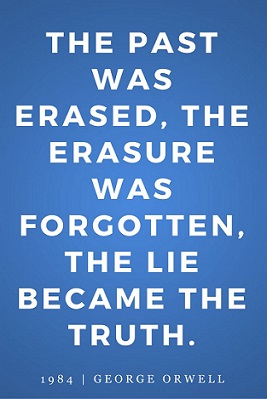
The US Founding Fathers were not perfect. And some of them, especially from the South, sought to protect their region’s economic interest in slave labor. And there were slaves in the North, as well, but not to the same extent. All this acknowledged, it was the way things were done; all over the world, in every society, and for thousands of years, this was business as usual.
'all men are created equal'
versus
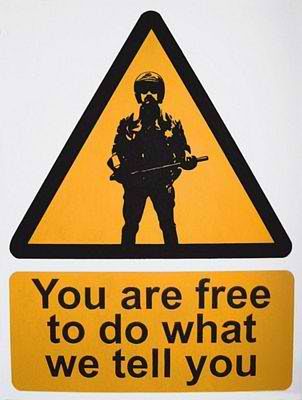
Editor's note: Have you noticed that, what used to be a rarity, today, we often hear of SWAT teams breaking down doors to enforce Dear Leader's will. National security, of course.
|
Editor’s note: The proclamation of every oppressive Ministry of Truth, the threadbare pretext for trampling upon personal liberties, the age-old cry of the totalitarian: “national security,” “for the people,” "censor misinformation to protect.”
|
Some of the Founders, however, had had enough of despotism, of buying-and-selling people like animals, and desired to create a new world of freedom for everyone, even for the slaves. In all of history, this had never been attempted; not even in ancient Greece where the “rule of law” was invented, as slaves were very common there.
Nevertheless, to change all of society, in one stroke, one generation, was asking too much of egoic human nature, and so compromises, by the best of the Founders, were grudgingly allowed. The most enlightened of them didn’t get everything they wanted. Imperfect as it was, it was a start, a political birth of freedom, never before seen in the chronicles of the world, in terms of declaring and enshrining human rights.
our problem is, this world is the only one we have right now
We have to live in this world, for now; though a better one is coming. For the moment, however, we might have to own a polluting car or ride in a polluting jet; but we don’t have to like it, and we wish for better days to come.
And we might buy a bottle of pills, or take some chemical treatment, even though we wish for more natural, more healthful, solutions to disease.
And we buy things at the grocery store that we know are laced with artificial components, and some of it is genetically altered. We have all kinds of ailments which our population never had a hundred years ago. Where have these diseases and disabilities come from? We don’t like any of this, but our resources are limited, and we try to choose the most healthful options we can.
We use cellphones, we use search engines, which spy on us, track us. We hate this "big brother" shadow in our lives, but, for now, we have to go along with it, until we can do better.
And some of the products we buy in the big "box stores" were made by virtual slave labor in third-world countries. The Big Corporations, in many cases, moved manufacturing operations to third-world countries for the express purpose of exploiting illiterate masses -- the neo-plantations. All this to enhance corporate profits - but it's a form of slavery.
Some of the immature woke students, with mush for brains and no sense of history, complaining about the Washington Monument, might have been wearing items, t-shirts or track shoes, or with gizmos in their backpacks, produced by the abused and exploited plebeians on the other side of the world.
Where is the outrage over this kind of slavery? - happening here, right now! not 250 years ago! Why are these products purchased, produced by the sweat and oppression of a neo-slavery?
We do all these things, and more, but, for many of us, it doesn't mean we're cheerleaders for all this rubbish, it doesn't mean we're proactively complicit with the evil on planet Earth. This despotic world is the only one we can live in right now, so, unless we're going to hide in a cave somewhere, we do our best.
And so it was for some, not all, the most enlightened, of the Founding Fathers. They hated slavery. They didn't like what was happening. They wanted everyone to have a good life, personal freedoms. And were the first in the history of the world to take a step in the right direction. And just as we, in our day, cannot rid ourselves of the oppressive Mega-Institutions, they couldn’t abolish slavery in their day; and, in some cases, if they owned or inherited slaves, the best temporary solution - with society arrayed against you, with no schools, no job opportunities open to any freed blacks - might simply have been that of allowing it and treating humanely all those in their household.

Editor's note: See more discussion on the "clear thinking" page. Anarchists redefine the word "racist" to further their usurpation agendas.
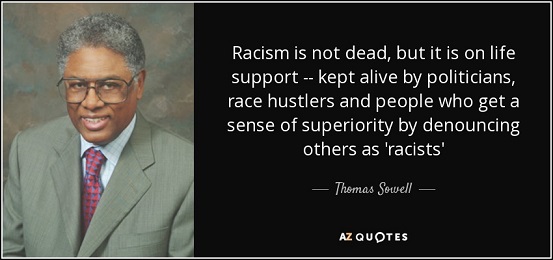
To suggest that we cannot tour the Washington Monument because slaves might have contributed labor is not only narrow-minded but Orwellian thought-control, a propaganda effort by totalitarians.
|
Editor’s note: When I was a teacher working on an Indian reservation, to my shock, I witnessed and lived under the only law-approved and institutionalized racism in America. A white could not go to one of their health clinics, even if one was a service-provider to the tribe! I had to drive nearly 100 miles to the nearest city for a healthcare item because whites were not allowed in their tribal health facilities! Many of those on the reservation indulged in open racism, proud of it, and as one fellow-teacher confided, “the kids are taught at home to hate the whites.” Further, I saw that the few educated tribal elites who ran the local government were exploiting their own people, ruling over them for private gain – just as the totalitarian whites do in Washington today on the macro-scale. We’re reminded that when Lewis and Clark passed through regions of the tribal indigenous, they found the natives exploiting, brutalizing, and, in some cases, enslaving, their own brethren. Nothing, in principle, has changed in 200 years – because, in the history of the world, the dark side of human nature has always been this way, the strong exploiting, enslaving, the weak. And to suggest that “we can’t go into the Washington Monument because the Founders had slaves” is an extremely ignorant, a propagandized and mentally conditioned, point of view.
|
The Founders are big targets by those with despotic intent because the writings of the Founders represent some of the highest laudation of human rights in the history of the world. And this is exactly what totalitarians are rabid to expunge, on their way to worldwide power-and-control. And this is why, on a national basis, we no longer celebrate the birthdays of Washington, Jefferson, or Lincoln; instead, now we have the grey-gruel, watered down "Presidents Day" - well, how inspiring to honor Andrew Johnson, Chester A. Arthur, and James Buchanan.
see the irony
The high school students touring the Washington Monument, mouthing totalitarian slogans, are, of course, not high school students at all but actors – young actors in the employ of mega-corporations intent upon totalitarian agenda – and now, I’m afraid, I must once again indulge an impoliteness – young actors, with mush for brains, air-heads, bought and paid for, serving as agents and mouth-pieces of an autocratic woke elite seeking for worldwide power.
See the irony: air-head young actors, with words having been put into their mouths, now mechanically decrying slavery, but, in reality, they themselves performing as puppets, pawns, slaves of propaganda masters. Further, as has come to light, the airhead celebs, actors, singers, musicians, politicians, and clergy, have not been just actively involved in but leading the sex-trafficking slavery and pedophilia.
the 'misinformation' attack
As a final note, let me draw attention to a particularly offensive term in current use by totalitarians – it’s “misinformation.” This word serves as prelude to censorship, to shutting down and stifling debate. If you don't want it known what you're really doing, if you can't answer a charge in an open forum, with other opinions to hone, then you call the other view "misinformation."
When totalitarians fear that their malfeasance might be exposed, they’re quick to label any opposition as “misinformation.” Think about what this really means. To declare any point of knowledge as “misinformation” would require a super-human, a divine-like grasp of all facts. See my articles on “Quantum Mechanics” and the history of science, and you will discover many examples of new theories and concepts, later proven to be correct, but originally flatly denied by the establishment as heresy, error, and “misinformation.”
|
"Is your position so weak that it cannot withstand debate?”
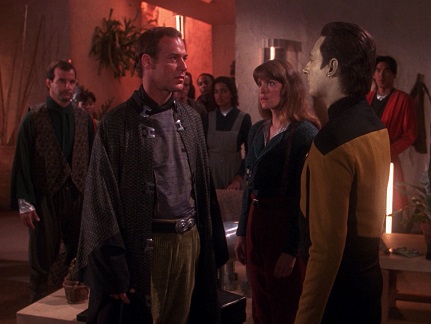
Star Trek: Next Generation, season three
episode #50, “The Ensigns Of Command” (1989)
“I called this meeting to replace the android’s misinformation.”
Data: “I wish to speak.”
“No, leave now.”
Data: “Is your position so weak that it cannot withstand debate?”
|
Let's understand this: When you hear someone spewing sophistry of "misinformation" and the need to censor, we can be certain that a totalitarian is speaking.
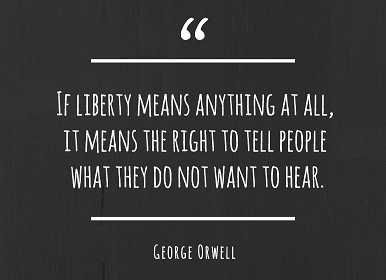
the essence of the US Constitution has been mimicked by virtually all countries of the West; if it weren’t for the Founders, the entire world today - what we call 'the free world' - would be far less free, and this fact is not lost upon totalitarians wishing to take us back to a darker autocratic time of history which denied human rights
Only a self-appointed “Infallible Dear Leader” would speak of "misinformation," an attempt to censor and assert a high-handed authoritarianism. Totalitarians care nothing for truth and progress but only to maintain their grip of power-and-control on the world. This is all very Orwellian.
the new 'book burners'
All this "misinformation" charge becomes neo "book burning" - concerning any idea which contradicts the totalitarian narrative. Think of the last time in history, in the twentieth century, that book-burning was considered right and proper, was given Dear Leader's approval - and see what happened in the aftermath.
Everyone should be allowed to speak; no one, no self-appointed Infallible Dear Leader of Truth, has the right to censor anything; or, as Abraham Lincoln said, to rule over another without that person's consent.
Only in an open forum of freely-flowing ideas can we determine what's right and wrong. Only thinking minds in dialectic dynamic, only in the purging fires of a rigorous induction, might we come closer to, and discover the nature of reality - but never by a heavy-handed process of inquisition, book-burning, and censorship.
John Stuart Mill on the censorship of "misinformation":
“If all mankind minus one were of one opinion, mankind would be no more justified in silencing that one person than he, if he had the power, would be justified in silencing mankind.”
“The peculiar evil of silencing the expression of an opinion is, that it is robbing the human race; posterity as well as the existing generation; those who dissent from the opinion, still more than those who hold it. If the opinion is right, they are deprived of the opportunity of exchanging error for truth: if wrong, they lose, what is almost as great a benefit, the clearer perception and livelier impression of truth, produced by its collision with error.”
“We can never be sure that the opinion we are endeavoring to stifle is a false opinion; and if we were sure, stifling it would be an evil still.”
“...there ought to exist the fullest liberty of professing and discussing, as a matter of ethical conviction, any doctrine, however immoral it may be considered.”
Editor’s note: Freedoms might erode by inches, but the effect of censorship and the diminishment of free speech is cumulative over time, leading to a generalized disrespect for human dignity. In the end, unless checked, it will result in what we've seen throughout history - in this:
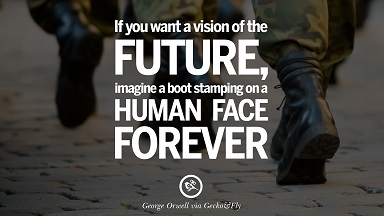
Restatement: Totalitarians today, through strategic propaganda efforts, have worked hard to sully the images of the Founders. When stellar names such as Thomas Jefferson or George Washington or James Madison are spoken of, they want you to immediately charge, “slave owners!” This recasting of character is part of the totalitarian agenda of diminishing the reputations of the greatest defenders of personal liberties in the history of the world! No one did better than they, and the frothing minions today are fooling themselves to suggest that they would have done better. The Founders were not saints, and some of them may not have treated their slaves humanely in all cases, but they lived in a world where slavery was as common as McDonalds or Home Depot in our world. In all of history, it was that common! On the WG site we have reviewed the teachings of philosophers and mystics who explain how the masses, the entire world, for thousands of years, including today, are caught up in mind-control, of dysfunctional identification with a Dear Leader, of living from levels of irrationality and base passions. The totalitarians play upon this tendency to live inauthentically, according to these lower impulses. The motives of totalitarians -- while assuming the mantle of the super-righteous, wearing the mask of piety -- are that of worldwide power and control, a total elimination of personal freedoms, and global slavery of the surviving plebs. How do we know this? It’s very plain. Look at the message of world history, but, more revealingly, also the whisperings of one’s own dark side, and be instructed.
|
Sir Isaiah Berlin, Winston Churchill in 1940: "Churchill ... does not fear the future... But whereas Roosevelt, like all great innovators, had a half-conscious premonitory awareness of the coming shape of a society ... Churchill, for all his extrovert air, looks within, and his strongest sense is the sense of the past... The clear, brightly coloured vision of history, in terms which he conceived both the present and the future, is the inexhaustible source from which he draws the primary stuff out of which his universe is so solidly built, so richly and elaborately ornamented. So firm and so embracing an edifice could not be constructed by anyone liable to react and respond like a sensitive instrument to the perpetually changing moods and directions of other persons or institutions or peoples. And, indeed, Churchill's strength ... he does not reflect a contemporary social or moral world in an intense and concentrated fashion; rather he creates one of such power and coherence that it becomes reality and alters the external world by being imposed on it with irresistible force. As his history of the war shows, he has an immense capacity for absorbing facts, but they emerge transformed by the categories which he powerfully imposes on the raw material into something which he can use to build his own massive, simply, impregnably fortified inner world... Churchill is acquainted with darkness as well as light. Like all inhabitants and even transient visitors of inner worlds, he gives evidence of seasons of agonized brooding and slow recovery. Roosevelt might have spoken of sweat and blood, but when Churchill offered his people tears, he spoke a word which might have been uttered by Lincoln..."
President Ronald Reagan, Jan. 20, 1984: "I'm convinced that in 1980 America faced one of those historic choices that come to a nation only a few times in a century. We could continue our decline, perhaps comforting ourselves by calling it inevitable; or we could realize that there is no such thing as inevitable, and choose instead to make a new beginning."
Napoleon Bonaparte (1769-1821): "History is the version of past events that people have decided to agree upon."
Winston Churchill: "History is written by the victors... History will be kind to me for I intend to write it."
Will Durant: "One of the lessons of history is that nothing is often a good thing to do and always a clever thing to say."
Abba Eban: "History teaches us that men and nations behave wisely once they have exhausted all other alternatives."
Henry Ford: "History is more or less bunk."
Edward Gibbon: "History is little more than the register of the crimes, follies, and misfortunes of mankind."
Georg Wilhelm Friedrich Hegel (1770-1831): "We learn from history that man can never learn anything from history… The history of the world is none other than the progress of the consciousness of freedom."
Robert Heinlein: "A generation which ignores history has no past and no future."
Aldous Huxley: "That men do not learn very much from the lessons of history is the most important of all the lessons of history."
Thomas Jefferson: "History, in general, only informs us of what bad government is."
Ted Koppel: "History is a tool used by politicians to justify their intentions."
Leonard Louis Levinson: "History is the short trudge from Adam to Atom."
Abraham Lincoln: "We cannot escape history."
George Santayana: "Those who do not remember the past are condemned to repeat it."
Klemens von Metternich (1773-1859): "The men who make history have not time to write it."
H.G. Wells (1866-1946): "Human history becomes more and more a race between education and catastrophe."
Orson Welles: “If there hadn't been women we'd still be squatting in a cave eating raw meat, because we made civilization in order to impress our girlfriends.”
John Buchan: "You think that a wall as solid as the earth separates civilization from barbarism. I tell you the division is a thread, a sheet of glass. A touch here, a push there, and you bring back the reign of Saturn."
James Fenimore Cooper: "If we would have civilization and the exertion indispensable to its success, we must have property; if we have property, we must have its rights; if we have the rights of property, we must take those consequences of the rights of property which are inseparable from the rights themselves."
Ludwig von Mises: "If history could teach us anything, it would be that private property is inextricably linked with civilization."
Ayn Rand: "Civilization is the progress toward a society of privacy. The savage's whole existence is public, ruled by the laws of his tribe. Civilization is the process of setting man free from men."
Robert M. Hutchins on Alfred North Whitehead: "Whitehead once said: 'It is a profoundly erroneous truism, repeated by copybooks and by eminent people when they are making speeches, that we should cultivate the habit of thinking of what we are doing. The precise opposite is the case. Civilization advances by extending the number of important operations which we can perform without thinking about them.' In mathematics, 'not thinking of what we are doing' is, Whitehead points out, the essence of abstraction, the importance of which lies in the fact that it is only by abstracting that we can form ideas of the universe."
Sarah Hinze: "Dr. Wayne Dyer, referring to the research of Sir Aldous Huxley, said: 'Aldous Huxley in The Perennial Philosophy studied every age and every civilization and found there were three factors that were a part of every human age and every civilization that ever existed. These were civilizations that never had any contact with each other at all; primitive tribes, Buddhists, eastern philosophies, cave men, etc., they all believed three things: 1. There is an infinite world beyond the world of the changing; there is some kind of an existence that is in back of this physical world that we find ourselves in and that we are awake in. 2. The second thing they all believed is that an infinite world is a part of every human personality . . . that it is a part of every human being. 3. And the third thing they have all believed and that is a part of every culture is that the purpose of life and of being here is to discover God or to discover that invisible world which we call God.'
RFK, Day of Affirmation Address, University of Capetown, South Africa, June 6, 1966: "Few will have the greatness to bend history; but each of us can work to change a small portion of events, and in the total of all those acts will be written the history of this generation ... It is from numberless diverse acts of courage and belief that human history is thus shaped. Each time a man stands up for an ideal, or acts to improve the lot of others, or strikes out against injustice, he sends forth a tiny ripple of hope, and crossing each other from a million different centers of energy and daring, those ripples build a current which can sweep down the mightiest walls of oppression and resistance."
Ernst Toller, German playwright, 1935: "History is the propaganda of the victors."
Will & Ariel Durant, The Lessons of History: "History repeats itself in the large because human nature changes with geological leisureliness, and man is equipped to respond in stereotyped ways to frequently occurring situations and stimuli like hunger, danger and sex. But in a developed and complex civilization individuals are more differentiated and unique than in a primitive society, and many situations contain novel circumstances requiring modifications of instinctive response; custom recedes, reasoning spreads, the results are less predictable."
Will & Ariel Durant, The Story of Civilization: Our Oriental Heritage: "It is almost a law of history that the same wealth that generates a civilization announces its decay. For wealth produces ease as well as art; it softens a people to the ways of luxury and peace, and invites invasion from stronger arms and hungrier mouths... A nation is born stoic and dies epicurean. At its cradle ... religion stands, and philosophy accompanies it to the grave. In the beginning of all cultures a strong religious faith conceals and softens the nature of things, and gives to men courage to bear pain and hardship patiently; at every step the gods are with them, and will not let them perish, until they do. Even then a firm faith will explain that it was the sins of the people that turned their gods to an avenging wrath; evil does not destroy faith, but strengthens it. If victory comes, if war is forgotten in security and peace, then wealth grows; the life of the body gives way, in the dominant classes, to the life of the senses and the mind; toil and suffering are replaced by pleasure and ease; science weakens faith even while thought and comfort weaken virility and fortitude. At last men begin to doubt the gods; they mourn the tragedy of knowledge, and seek refuge in every passing delight. Achilles is at the beginning, Epicurus at the end. After David comes Job, and after Job, Ecclesiastes."
David McCullough, historian: Commenting on the surreal and poetic ending to the lives of John Adams and Thomas Jefferson, both dying, not only on the same day but, on the 50th anniversary of the signing of the Declaration: "When he was lying there dying, thinking of Jefferson, the cannon and rifle fire and firecrackers were all booming in the distance, celebrating the Declaration of Independence. Now, if you -- if you did that in a movie, somebody would say, 'Oh, that's too much. You know. Things like that don't happen in real life.' It did happen in real life, again and again, through that whole amazing life."
Albert Schweitzer: "Civilization can only revive when there shall come into being in a number of individuals a new tone of mind independent of the one prevalent among the crowd and in opposition to it. A new public opinion must be created privately and unobtrusively. The existing one is maintained by the press, by propaganda, by organization, and by financial influences which are at its disposal. The unnatural way of spreading ideas must be opposed by the natural one, which goes from man to man and relies solely on the truth of the thoughts and the hearer's receptiveness of new truth."
John Adams (20 years old), Oct. 12, 1755: "All that part of Creation that lies within our observation is liable to change. Even mighty states and kingdoms are not exempted. If we look into history, we shall find some nations rising from contemptible beginnings and spreading their influence, until the whole globe is subjected to their ways. When they have reached the summit of grandeur, some minute and unsuspected cause commonly affects their ruin, and the empire of the world is transferred to some other place. Immortal Rome was at first but an insignificant village, inhabited only by a few abandoned ruffians, but by degrees it rose to a stupendous height, and excelled in arts and arms all the nations that preceded it. But the demolition of Carthage (what one should think should have established it in supreme dominion) by removing all danger, suffered it to sink into debauchery, and made it at length an easy prey to Barbarians. England immediately upon this began to increase (the particular and minute cause of which I am not historian enough to trace) in power and magnificence, and is now the greatest nation upon the globe. Soon after the Reformation a few people came over into the new world for conscience sake. Perhaps this (apparently) trivial incident may transfer the great seat of empire into America. It looks likely to me. For if we can remove the turbulent Gallics [the French], our people according to exactest computations, will in another century, become more numerous than England itself. Should this be the case, since we have (I may say) all the naval stores of the nation in our hands, it will be easy to obtain the mastery of the seas, and then the united force of all Europe, will not be able to subdue us. The only way to keep us from setting up for ourselves is to disunite us. Divide et impera. Keep us in distinct colonies, and then, some great men in each colony, desiring the monarchy of the whole, they will destroy each others' influence and keep the country in equilibrio."
Brooks Atkinson: "In every age 'the good old days' were a myth. No one thought they were good at the time. For every age has consisted of crises that seemed intolerable to the people who lived throught them."
Paul Johnson: "Again and again, an enlightened and strong-willed individual has pushed against the prevailing trends and the prevailing wisdom to perform an act of courage that has changed history."
|




















